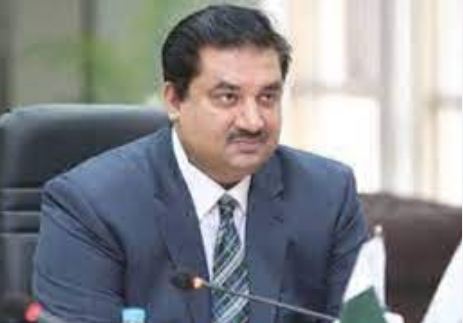DNA
ISLAMABAD, JAN 20: Minister of State for Energy Khurram Dastgir said that current government prioritised generation of energy from domestic resources such as hydel, solar, wind, coal and the new deal to minimise reliance on imports . He was speaking at the concluding session of the 2nd Regional Dialogue 2023 organized by the Institute of Regional Studies here on Thursday. He said that the government was also working on activating wind corridors in Balochistan for energy creation. The government intended to fulfill energy needs while adhering to the SDG commitments and using domestic coal instead of imported coal, he added. The Minister said that there was a need for appropriate advocacy on energy conservation as it was likely to remain expensive for the foreseeable future and was imperative for economic growth.
Previously, the second day of the Regional Dialogue 2023 featured discussions on contemporary nontraditional challenges confronting the region, climate change and food security and industrial development and technological innovation. Discussing the potential areas of development, Haroon Sharif, former Minister of State said that Pakistan needed to aggressively focus on governance issues, low productivity and the growing challenge of underutilised youth faculties. He stressed the need to invest more in knowledge-based and cultural aspects in addition to augmenting CPEC infrastructural development in sync with relevant policy and institutional frameworks.
Dr Sabina Durrani, DG Population Planning Wing while deliberating upon the challenge of rising population growth rates said that the disharmony between available resources and the current growth rate was highly alarming and required multi-sectoral interventions on part of governments in the region. Health and population were interlinked and while Pakistan did possess a reasonable health infrastructure, low budget allocation for its sustenance was a major factor behind the hiccups in the system, she added.
Dr Shumail Daud Arain said that while there was a clear burden on the urban areas due to reasons of better access and facilities, the disintegration of the health system had led to increased governance and fiscal problems.
While discussing the growing challenge of food insecurity , Abhas K. Jha, Practice Manager Climate Change and Disaster Risk Management, South Asia Region World Bank, said that Pakistan bore the potential to become an agricultural powerhouse by repurposing subsidies and using resources to support transformative on-farm investments.
Other worthy speakers from the three sessions from day 2 of the Dialogue included Ms Aisha Khan, Ms Florence Rolle, Mr Arif Goheer, Ms Afia Salam, Mr Ahsan Javed, Dr Salma Malik and Mr Javaid Iqbal among others.












